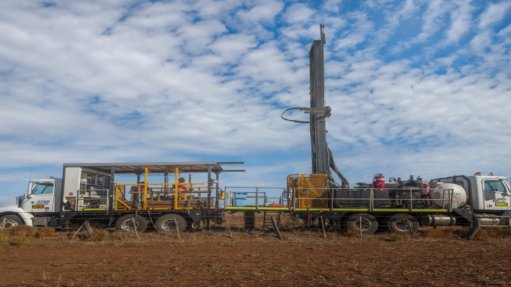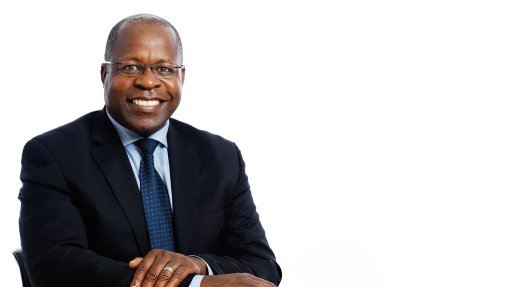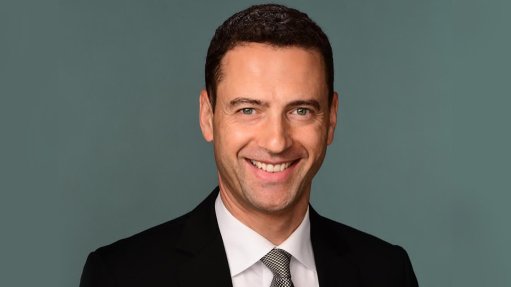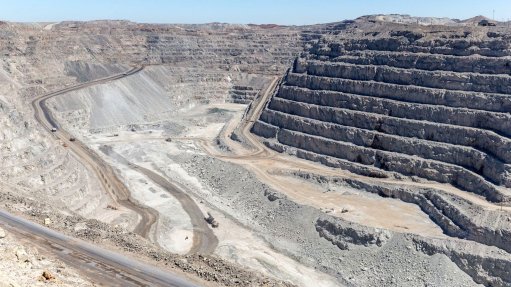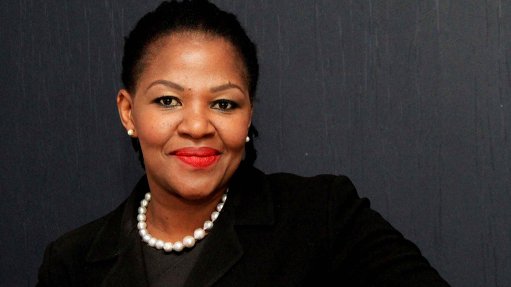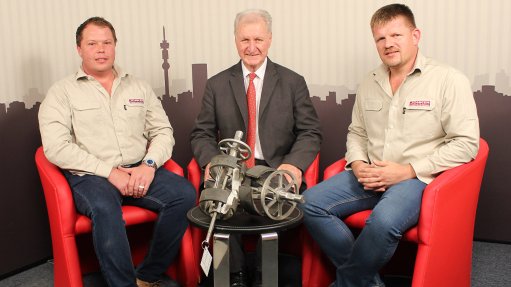New energy to ease mining industry conflict – Scholes
CAPE TOWN (miningweekly.com) – There appears to be new political resolve to mend the relationship between the mining industry and the Department of Mineral Resources, says specialised law firm Malan Scholes director Hulme Scholes.
Speaking at the IHS Markit South African Coal Export Conference, in Cape Town, on Thursday, the veteran lawyer noted that “with the new energy blown into the industry by African National Congress president Cyril Ramaphosa”, he hopes for the current litigation surrounding the Mining Charter III to lead to it fading away and for “something more sustainable” to be implemented.
“[Further], for the first time . . . we will see the trust deficit between the mining industry and department close, with hopefully [a sustainable policy] that can transform the industry to benefit everybody,” he averred.
The Reviewed Draft Broad-Based Black Economic Empowerment Charter for the South African Mining and Minerals Industry, also known as Mining Charter III, was published in June last year by Mineral Resources Minister Mosebenzi Zwane.
The charter, according to several industry commentators, including Scholes, has resulted in legislative contestation. An interdict application to suspend the implementation of the charter and a review application to set the charter aside have been lodged.
The Chamber of Mines’ (CoM’s) application to have the charter set aside has been postponed to February 19. The basis of the CoM’s case is the lawfulness and constitutionality of several clauses of the reviewed charter, as well as the lawfulness of the charter as a whole.
According to Scholes, the charter “is unconstitutional, it is a skittle put up to be knocked down . . . it is not designed to survive, while the rot in the Department of Mineral Resources must be sorted out and Minister Zwane must go”.
He added that, while the charter has been suspended, he would soon hope to see engagement between the CoM, interest groups and government “to draw a line through the Mining Charter III, evaluate where we are now and how effective charters I and II were and to learn from them to develop a new charter”.
“If we have a change in attitude from government and return to administering industry as opposed to taking political decisions . . . the conflict will dissipate,” Scholes said, noting that change may come soon and that the trust deficit would hopefully start to close.
Scholes, however, acknowledged that he was not sure how long it would take to review and set the charter aside.
Scholes has also launched a court application – the Malan Scholes application – with the support of seven mining companies.
He noted that the court application is “very much alive”, having been granted a degree of locus standi (the right to bring an action or to appear and be heard in court) to take on the Minister.
Scholes’ application is for the Mining Charter I, II and III to be reviewed and to be set aside on the basis that the charters are policy and not law.
“The problem is that the government is taking punitive sanction against people for alleged noncompliance with a policy as opposed to law,” Scholes said, noting that if the charter was law, it would “fly in the face of the rule of law”.
A key theme in Scholes’ notice of motion would be to compel the Minister of Mineral Resources to amend the Minerals and Petroleum Resources Development Act (MPRDA) within 18 months to provide for transformation in the industry.
He avers that the charter, in its current form, does the opposite of promoting and trying to achieve transformation and black entrepreneurship in the industry. Scholes explained that it made no commercial sense for historically disadvantaged South Africans to be locked in, in terms of selling their shareholding.
“We must have transformation in the industry, but just [executed] properly. Do it in the MPRDA where it is an instrument of law, not an instrument of policy, which is open to abuse,” Scholes argued, underscoring that the MPRDA was the primary objective to give effect to transformation.
Article Enquiry
Email Article
Save Article
Feedback
To advertise email advertising@creamermedia.co.za or click here
Press Office
Announcements
What's On
Subscribe to improve your user experience...
Option 1 (equivalent of R125 a month):
Receive a weekly copy of Creamer Media's Engineering News & Mining Weekly magazine
(print copy for those in South Africa and e-magazine for those outside of South Africa)
Receive daily email newsletters
Access to full search results
Access archive of magazine back copies
Access to Projects in Progress
Access to ONE Research Report of your choice in PDF format
Option 2 (equivalent of R375 a month):
All benefits from Option 1
PLUS
Access to Creamer Media's Research Channel Africa for ALL Research Reports, in PDF format, on various industrial and mining sectors
including Electricity; Water; Energy Transition; Hydrogen; Roads, Rail and Ports; Coal; Gold; Platinum; Battery Metals; etc.
Already a subscriber?
Forgotten your password?
Receive weekly copy of Creamer Media's Engineering News & Mining Weekly magazine (print copy for those in South Africa and e-magazine for those outside of South Africa)
➕
Recieve daily email newsletters
➕
Access to full search results
➕
Access archive of magazine back copies
➕
Access to Projects in Progress
➕
Access to ONE Research Report of your choice in PDF format
RESEARCH CHANNEL AFRICA
R4500 (equivalent of R375 a month)
SUBSCRIBEAll benefits from Option 1
➕
Access to Creamer Media's Research Channel Africa for ALL Research Reports on various industrial and mining sectors, in PDF format, including on:
Electricity
➕
Water
➕
Energy Transition
➕
Hydrogen
➕
Roads, Rail and Ports
➕
Coal
➕
Gold
➕
Platinum
➕
Battery Metals
➕
etc.
Receive all benefits from Option 1 or Option 2 delivered to numerous people at your company
➕
Multiple User names and Passwords for simultaneous log-ins
➕
Intranet integration access to all in your organisation









